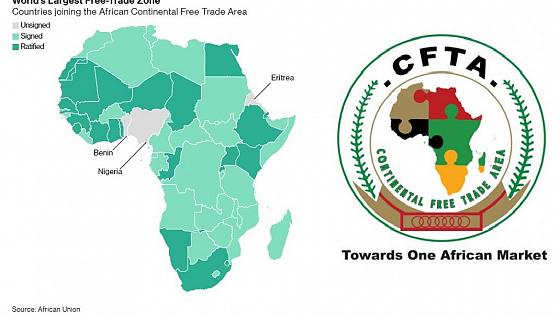By Zayamu Hassan
African continent has launched the Africa Trade Exchange (ATEX), to tackle the unexpected crisis of food, fertilizer and energy commodities occasioned by the Russia-Ukraine war.
The ATEX, is a platform to pool-procure bulk basic commodities and ensure countries access scarce supplies in a transparent and equitable manner.
This was made possible through the African Development Bank’s $1.5 billion emergency food production plan aimed at mitigating the effect of the war on food prices through rapid production of wheat, maize, rice and soybean.
The collaboration and partnership between AFREXIMBANK with other key continental institutions including, the AfCFTA Secretariat, and UNECA made the launch a reality.
The Russia-Ukraine crisis has increased the strain on critical supply chains in commodity markets, with current and expected price increases in agricultural products and inputs such as cereals and fertilisers.
In a statement, the Economic Commission of Africa (ECA) explained that ATEX is a digital trade platform which will complement the existing digital ecosystem constructed to support the implementation of the African Continental Free Trade Area (AfCFTA) Agreement.
“ATEX will help realize the development potential of e-commerce and digitalisation, particularly by facilitating access for small and medium-scale enterprises (SMEs) to the wider African market.
“This will enhance intra-African trade and the African trade position in the global market, thus assisting in adjusting to disruptions in supply chains and continued growth of African businesses and economies.
“To support supply chain resilience, ATEX will digitally enable the trade of the main agricultural commodities and inputs imported by the continent from Russia and Ukraine: cereals (including wheat, maize, and grains), fertiliser and associated inputs, oils, oilseed, as well as other products and inputs critical to support agricultural value chains.
“The platform will facilitate pooled procurement by African buyers of these commodities from African suppliers where possible, as in the case of fertilisers; and from outside the continent where necessary, as in the case of cereals and grains.
Thereby, contributing to the creation of new, continental supply chains which insulate Africans from the volatility which has characterised recent years,” the statement said.
ATEX, the statement further disclosed, constitutes an African innovation designed to address another crisis facing the continent – it is a measure which the broader international community should support, and from which we can all learn.
Through this and other comparable programmes, Africa is demonstrating leadership and ownership over its own challenges. But to say this is an African solution to an African problem is not to dismiss or discourage international collaboration – indeed, our global partners will be pivotal in ensuring that Africa is included in the conversation on supply chain resilience.
“Africa must develop a more secure and stable mechanism to obtain critical commodities and cultivate stronger intra-African links between suppliers. ATEX represents only a fraction of Africa’s economic and innovative potential, but it promises a transformation in the continent’s approach to imports and trade,” the statement said.
Explaining the negative impact of the Russia-Ukraine crisis on the African continent, the statement said: “This has put pressure on sometimes fragile domestic production for several African countries relying on these supply chains for staple goods, some of which depend on these imports for up to 80% consumption of wheat for instance.
“However, the larger implications are the downstream effects of potential supply chain constraints that can raise prices, increase vulnerability and food insecurity, building unsustainable pressure on already stretched fiscal environments.
“Aggregating its demand for these commodities will allow the continent to negotiate for competitive prices, especially for cereals and grains, assuring net food importers of the access and affordability of commodities like wheat and maize.
“At the same time, aggregating fertiliser demand from importing countries can deliver African producers of inputs such as fertilisers, ensuring timeliness and affordability, and thereby reducing the risk of food shortages.”




